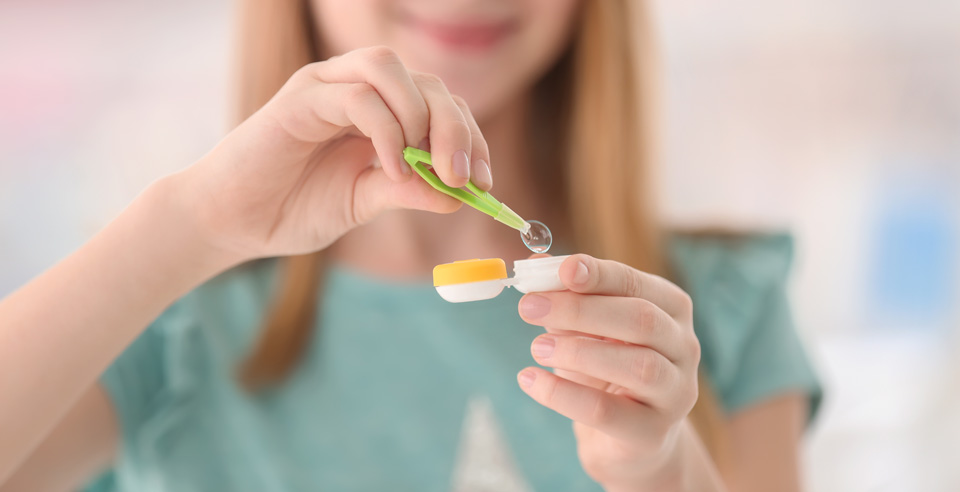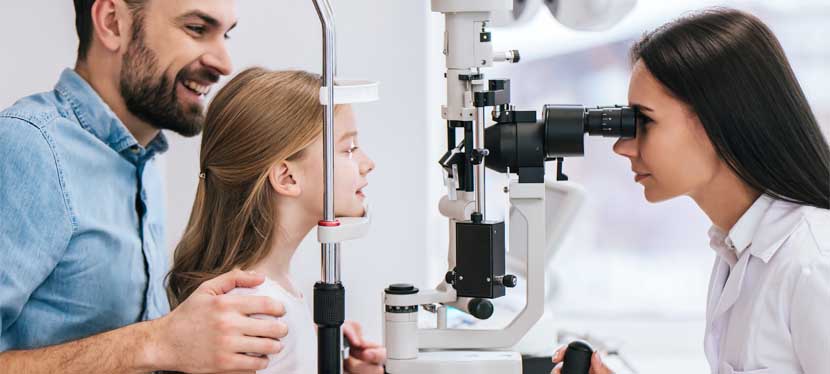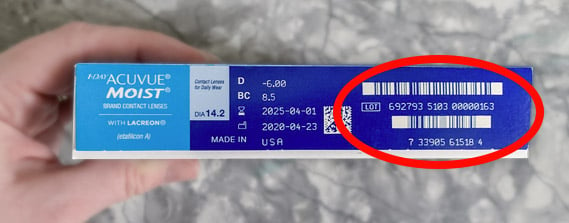Contacts & Kids
Since wearing contacts—compared to glasses—comes with an increased risk of eye infections, the care of contact lenses becomes extra important. If you’re wondering whether or not your child or teen is ready to transition to wearing contacts, here are a few things to consider.

When Can My Child Start Wearing Contact Lenses?
Most kids get their first pair of contact lenses around the age of 12 or 13. According to Bernard P. Lepri, O.D., M.S., M.Ed., a Food & Drug Administration (FDA) optometrist, the preteen years are when most eye care professionals believe the risks outweigh the reward for younger children. The ultimate determining factor for when someone is physically able to wear contact lenses is up to your optometrist. If your eye doctor says it is safe for your child or teen to wear contacts, then it is up to you, as the parent, to decide if it is the best choice.
How Do I Know if My Child is Ready for Contacts?
When deciding if your child should wear contacts, there are both behavioral and lifestyle factors to consider. Ask yourself the following questions about your child to determine if they’re ready for contact lenses.
- Do they practice good hygiene?
If your child keeps their belongings clean and organized, then there is a good chance they will do the same with their contacts. Think about how they keep the condition of their room and their overall hygiene habits. - Do they follow instructions?
Whenever you tell your child to do something, do they do it the first time or do you have to keep repeating yourself? This will determine if they will take the steps to care for their contacts seriously and follow the correct procedures. - Are they active or play sports?
Contacts are a great alternative to glasses for the active kid. Glasses require constant adjustment and run the risk of being hit and broken. Sports goggles are another alternative to glasses but they’re still not the most comfortable option. - Are they unhappy with how they look in glasses?
Some kids will have lower self-esteem when wearing glasses. They may want to wear contacts solely because they don’t like how they look in glasses. - Have they been persistent?
Children and teens ask for lots of different things. Try waiting a week or so to see if contacts are still on their radar. If they are serious about wanting to wear contacts, they won’t let it go. If not, they could forget about it and move on to the next thing.
Different Types of Eye Doctors

Your kid's eye exams are important, so you’ll want to get them scheduled with the right eye doctor. The various types of eye care providers can get confusing, so take a moment to learn their difference in specialties before your next visit.
Ultimately, you want your child to be safe, happy, and healthy. Make sure this decision is something you both feel comfortable with. If you think your child is ready to wear contact lenses, schedule an appointment with their eye doctor to get the process started.

